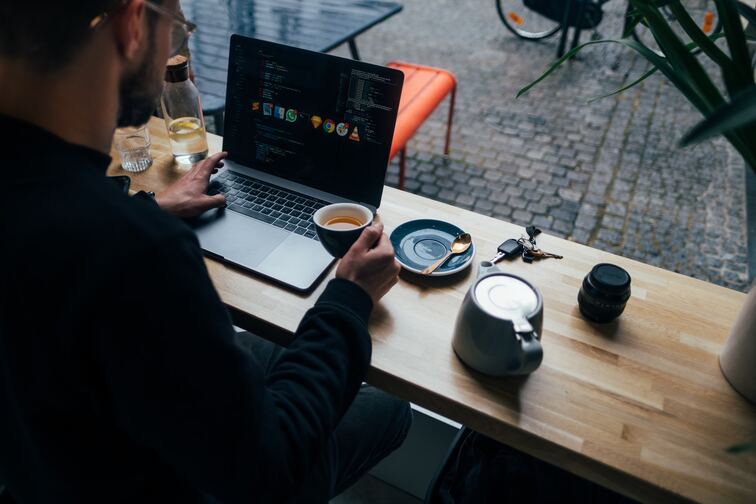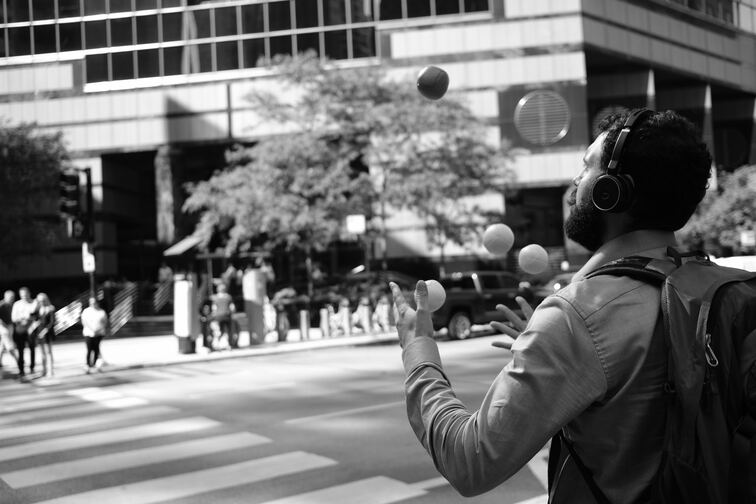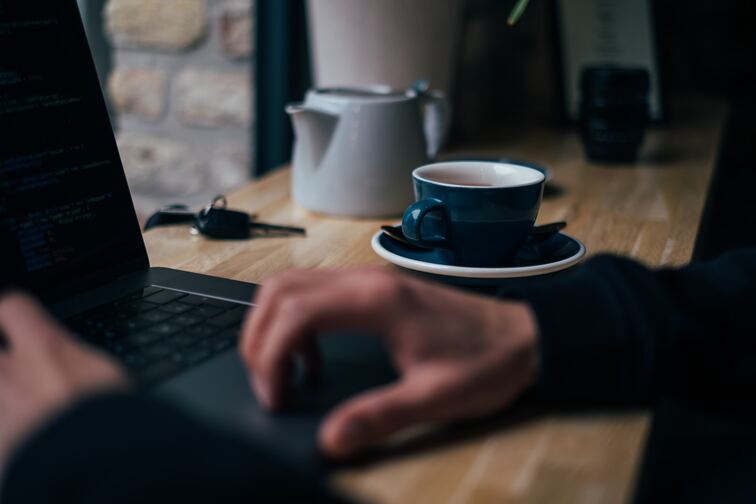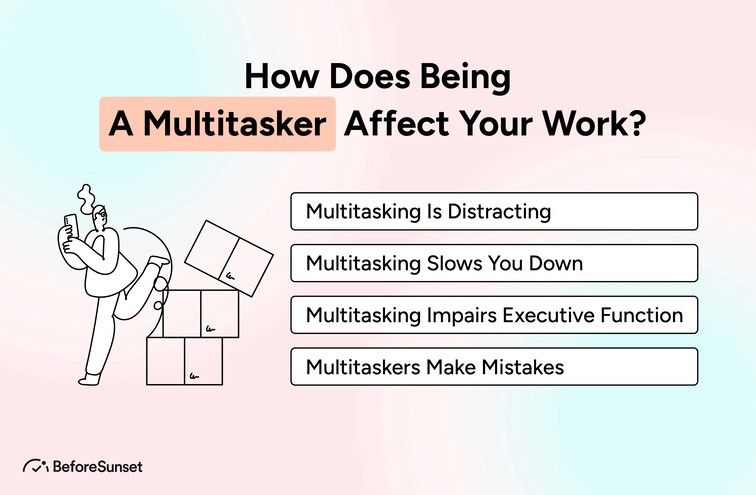The ability to multitask is frequently praised as a desirable talent, a sign of efficiency and production, and may be used for everything from checking emails during meetings to managing many tasks at once. But when we go more into the complex web of contemporary workplace interactions, it becomes more and more clear that multitasking has two cons.
While it promises to help us do more, the practice may come at a high cost and have a substantial impact on the caliber of our work and our overall effectiveness.

Benefits of Multitasking
Enhanced Efficiency: By allowing people or systems to work on several activities at once, multitasking can help them do more in less time. Increased production and productivity may result from this.
Time Savings: When done well, multitasking may save time by enabling people to work on several things at once, minimizing the need to move back and forth between different things to do.
Increased Productivity: Multitasking can help people solve critical or time-sensitive issues while also moving forward on other ongoing tasks or obligations.
Improved Resource Utilization: Multitasking in computer systems allows for the effective use of CPU and memory resources, enabling the system to execute numerous programs simultaneously without having to wait for one job to complete before beginning another.
Flexibility: By multitasking, people may adjust to shifting priorities and deal with unforeseen requests or disruptions while continuing with existing duties.
Better Time Management: By allowing people to do several tasks concurrently, multitasking can help people better manage their time.
Reduced Boredom: By enabling people to participate in many things at once, multitasking may reduce boredom or monotony and make work or tasks more interesting.
Meeting Deadlines: When several jobs must be accomplished in a short amount of time, multitasking may be extremely helpful in meeting deadlines.
Skill Development: Multitasking can help individuals develop and refine their ability to manage multiple responsibilities, which can be a valuable skill in various personal and professional settings.
Adaptability: Multitasking is beneficial in situations requiring flexibility and the capacity to manage a variety of activities, such as emergency response, project management, and event preparation.
How Multitasking Hampers Productivity
The requirement to multitask appears to be present everywhere, from balancing various professional assignments to managing a flood of digital alerts and personal duties.
The contradiction, however, is that while multitasking is usually praised, a growing amount of research indicates that it may actually reduce productivity rather than increase it. This raises a crucial issue: Does our continued acceptance of multitasking result in decreased efficacy and focus?

Multitasking Is Distracting
Although multitasking is generally thought of as a technique to do more activities in less time, it frequently has a big drawback: distraction. Even while the goal of multitasking is efficiency, the truth is that trying to focus on several things at once can impair concentration, decrease output, and increase mistakes.
Because it necessitates frequent task switching, multitasking is disruptive in many ways. Our brains require time to concentrate and reorient when we switch from one job to another. Because of this cognitive "switching cost," we actually wind up spending more time moving between projects than finishing them. It can be difficult to keep focus and create high-quality work when one's mind is constantly changing contexts, which can provide a sense of mental confusion.
Additionally, when we multitask, we frequently divide our attention between many things, which might lead to a reduced degree of involvement with each work. We are less likely to completely understand information or make deliberate judgments when our attention is divided. This can be particularly harmful in circumstances that call for creativity, problem-solving, or critical thinking.
The dangers of multitasking are even more evident in the era of smartphones and continual digital communication. Our workflow can be hampered by notifications from social media, email, and chat applications, which divert our focus from the task at hand. These distractions make it difficult for us to focus and enter a deep state of work, which is a state of intense concentration and productivity.
Multitasking Slows You Down
In the modern world, multitasking—the act of managing several things at once—is a term that is frequently misinterpreted. Although a lot of people think technology may help them get more done in less time, the truth is exactly the contrary.
You can become much more inefficient and less productive when you multitask. This is mostly due to a notion known as "switching costs." Your brain experiences a cognitive switching cost whenever you change tasks.
The time it takes for your mind to switch from the previous task to the new one, refocus, and resume its full production, constitutes this cost. These switching expenses may add up quickly, significantly slowing down your production.
Additionally, multitasking tends to make it harder for you to focus on each work in isolation. No one job receives your complete and undivided attention when you divide your focus across many tasks. This lack of concentration can create mistakes, oversights, and a slower rate of work since you're not giving each activity your full attention.
In real life, this lack of attention frequently results in more mistakes. A typo in an email, an inaccuracy in a report, or a forgotten detail in a project can all cause you to move far more slowly. It could be necessary for you to go back and fix these errors, which would waste time.
Additionally, multitasking may provide the impression of productivity. Even though you may appear to be engaged and occupied, the quality and quantity of your job may suffer. This might cause you to take longer to resolve issues or complete activities later, which can slow you down even more.
In addition to lowering productivity, multitasking can make it difficult to efficiently prioritize jobs. Spending time on less crucial tasks at the cost of more crucial ones might result in wasted effort and a slower rate of progress toward your overall objectives.
The tension and mental exhaustion that multitasking can result in is another drawback. Mental fatigue brought on by frequently switching between jobs might raise stress levels and sap overall stamina. This can slow down your productivity over time by further reducing your capacity for effective work.
Furthermore, multitasking frequently results in incomplete or imperfectly completed activities. Due to the necessity to go back and finish these jobs later, this might cause a backlog of unfinished work, slowing down your progress and stretching timescales.

Multitasking Impairs Executive Function
An individual's ability to effectively organize, plan, and carry out activities is referred to as executive function. Working memory, cognitive flexibility, inhibitory control, and goal-setting skills are some of these talents. Although it could seem like a means to demonstrate one's cognitive power, research indicates that multitasking can seriously damage these important executive processes.
The significant cognitive strain that multitasking places on the brain is one of the main causes of executive function impairment. When people try to focus on several things at once, their working memory, which is in charge of temporarily storing and manipulating information, gets overwhelmed. This cognitive overload can make it difficult to remember and comprehend crucial information, which eventually impairs one's capacity to make wise judgments or successfully prioritize responsibilities.
Additionally, multitasking might reduce cognitive flexibility, or the ability to change activities or mental processes in response to changing conditions. Cognitive stiffness can be produced by switching between activities often or responding quickly to varied stimuli, which makes it difficult to switch gears when necessary. This lack of adaptability might hinder problem-solving and the ability to meet new difficulties, slowing down cognitive processes in general.
Multitasking also impairs inhibitory control, another crucial component of executive function. The capacity to filter out unimportant information or distractions while keeping your attention on the job at hand is known as inhibitory control. This skill is weakened by multitasking due to the continual switching and distracting exposure. As a consequence, people could find it challenging to resist the temptation to check their alerts, browse the internet, or perform unrelated chores, which reduces their overall productivity.
Goal-setting and goal-pursuit can both be hampered by multitasking. A clear grasp of priorities and the capacity to manage time and resources effectively are prerequisites for effective goal formulation. However, multitasking can lead to a disorganized attitude, making it difficult to establish and maintain worthwhile goals. As a result, people could find it difficult to accomplish their goals effectively, which would reduce productivity and make them feel overwhelmed.
Multitaskers Make Mistakes
While doing numerous tasks at once is frequently seen as a talent that may increase productivity, multitasking also has a big drawback: the tendency to make mistakes. This paradoxical element of multitasking emphasizes that the human brain can only handle a certain number of things at once.
The cognitive burden caused by splitting attention among several activities is a major factor in why multitaskers are more likely to make mistakes. Your cognitive resources are strained when you move between tasks quickly or try to comprehend information from several sources at once.
As a result, you can forget vital information, make mistakes in judgment, or miss crucial cues. These errors can have a range of implications, from small data input errors to more serious ones like car accidents and professional misunderstandings.
The phenomenon known as "attentional blink" is another element causing errors when multitasking. This happens when people switch between tasks and briefly lose awareness of inputs or information. Important information may be overlooked during this loss of focus, resulting in omission mistakes.
Additionally, multitasking might harm working memory, which is in charge of handling and storing information temporarily. A person's working memory becomes overloaded when they try to juggle several activities, making it challenging to remember information when needed, pay attention to details, and follow directions precisely. In activities that need prolonged attention and exact memory, cognitive overload can result in errors.
Multitasking also impairs one's ability to exercise inhibitory control, which is the capacity to block out distractions and irrelevant information. People are more prone to being distracted by distractions like checking their cellphones or responding to messages while they are multitasking. As people move their focus away from important duties, these distractions can result in mistakes of omission or conduct.

Brain Function in Multitaskers
In today's fast-paced environment, multitasking is a prevalent practice. Understanding how the brain works during multitasking might provide us with important insights into the cognitive processes involved. While some people consider themselves multitasking experts, research indicates that multitasking is more difficult for the brain to process than it first appears.
The idea of task switching is important for how the brain works when multitasking. The process of "task-switching," in which the brain disengages from the present activity, reorients itself to the new task, and refocuses its cognitive resources, occurs when people change their attention from one task to another.
Cognitive expenses associated with this procedure are sometimes referred to as "switching costs." As the brain struggles to switch between activities, these costs might appear as delays in reaction time, lower accuracy, and decreased efficiency.
In order to multitask effectively, working memory is essential. This cognitive system is in charge of manipulating and temporarily storing the information required for activities. Working memory is highly used while multitasking since it must handle and switch between several bits of information from various processes.
People may find it difficult to recall instructions precisely, keep track of details, or make judgments when their working memory is overloaded, all of which might hinder their ability to complete activities successfully.
Inhibitory control, or the capacity of the brain to weed out distractions and irrelevant information, is also essential for multitasking. In order to stay focused, multitaskers must constantly assess which stimuli or tasks need their attention at any one time. This calls for a delicate balancing act of cognitive resources, and when inhibitory control is weakened, people are more prone to interruptions and mistakes.
Additionally, during multitasking, the brain frequently assigns activities a priority depending on their perceived relevance or urgency. This prioritizing entails a continuous assessment of task importance, which may cause cognitive alterations and the appropriate allocation of resources. However, this prioritizing procedure does not always correspond with the best job sequencing, which could have an impact on productivity and decision-making.
It's interesting to note that different people's brains work differently when multitasking. Some people could have superior inhibitory control and more cognitive flexibility, which would allow them to move between activities more quickly and efficiently. Others could find these procedures more difficult, which would make multitasking less effective for them.
How To Break the Multitasking Habit
Recognize the Drawbacks: Start by being aware of the drawbacks associated with multitasking. Recognize that it frequently results in decreased productivity, elevated stress, greater mistakes, and diminished attention. Understanding these negative effects might inspire you to alter your habits.
Set Clear Goals: Establish definite objectives and a priority list for your work. Decide which chores need your attention and are the most critical. A firm feeling of purpose might aid you in restraining the impulse to multitask on less important tasks.
Establish Priorities: Make a timetable or to-do list for the day. Set aside certain time slots for various jobs and activities. You can avoid multitasking temptations and stay on target by using this methodical strategy.
Reduce Distractions: Reduce outside distractions by turning off notifications on your devices, removing pointless applications or tabs, and designating a specific workplace. Eliminate any visual and audio distractions that can tempt you to multitask.
Practice Mindfulness: Develop your presence and mindfulness at work by practicing mindfulness. Give each activity your undivided attention while you concentrate on it. You may keep yourself present and grounded by using mindfulness practices like deep breathing and meditation.
Use Time Management Techniques: Consider employing time management strategies like the Pomodoro Technique, which entails focusing on one job for a certain period of time (for example, 25 minutes) before taking a little break. Your brain will learn to focus on one item at a time as a result of this.
Group Similar Tasks: When you have a number of similar tasks, put them together and complete them in order. Compared to often moving between unrelated tasks, this may be more efficient.
Set Boundaries: Tell coworkers, relatives, or housemates that you want to avoid distractions. Set limits during working hours to reduce disruptions from outside sources.
Exercise Patience: It may take some time to break the habit of multitasking. Be kind to yourself and remember that errors are part of the process. The aim is steady progress.
Evaluate and Reflect: Reflect and evaluate your development frequently. Consider how your working habits are evolving and whether your productivity and attention have improved. Adapt your tactics as necessary.
Seek Support: Tell a dependable friend, member of your family, or coworker about your intention to stop multitasking. Having someone hold you responsible might help you stay motivated.
Reward Yourself: Celebrate your accomplishments, no matter how modest, and treat yourself. You may strengthen your resolve to focus on one job at a time by rewarding yourself when you successfully resist the impulse to multitask.
Use BeforeSunset AI To Avoid Multitasking
BeforeSunset AI is a productivity tool designed to help you manage your tasks, projects, and time more efficiently. It can help you stay organized, prioritize tasks, and minimize the need for multitasking.

